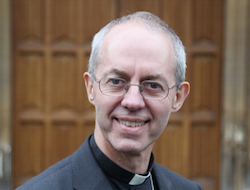
I was extremely grateful to be invited to send a message to the National Association for Children of Alcoholics (Nacoa).
No doubt one of the reasons that I was asked is my own experience in that regard, which will doubtless have been much easier than many of those who will hear or read this, and more difficult than others. We all know that having a parent who abuses alcohol is one of the most disruptive experiences for any child and leads frequently to long-term effects in one’s self confidence, one’s capacity to relate, and even for some people in their own relation to alcohol itself.
My experience, whether easier or more difficult than that of others, was fairly difficult. It involved periods when there seemed to be no problem, and periods when the problem seemed to have no end. It led to wild mood swings from my father, to behaviour that was in retrospect deeply abusive, and to other times where affection was expressed. By the end of his life, it meant that the event of his death was again a confusing one emotionally, including dealing with, at one level, a sense of relief.
One of the things I most missed was the company of others who understood the issue. Even good friends could not believe that he was as I experienced him, given that for them he seemed quite normal, and even very amusing and clever (which indeed, in the absence of alcohol, was what he was).
However, like many, I end up looking back with a profound mixture of emotions, but one predominant one. My own experience was of finding hope, healing and a call and purpose for my life. Nothing could be more important. You would expect me to say that God through Jesus Christ was in the middle of this (I am after all a sort of clergyman). I do want to say that because that is my own experience. But also I see God having worked through many other relationships, including that with my wife and children, who have been patient when it was needed and suitably impatient when it was needed of all the after-effects of my own upbringing.
We are never ourselves when we are solitary, but in all of human history and community it has invariably been the case that it is in relationship that we become most fully what we are called to be, provided that relationship is healthy. An early Christian writer said that we are at our most human when we are in relationship with God. But often that relationship with God is mediated through relationships with others, our humanity is deepened by love given and received.
For all these reasons, I want to send my greetings and gratitude for what you do. I wish you had been around (or if you were, that I had known of you) when I was growing up. You are so important because you can be the source of a real community, that merely by existing and accepting, offers the chance of healing and the hope of purpose to people whose lives have been disrupted and diminished by the effect of alcohol abuse in someone whom they love.
Justin Welby, Archbishop of Canterbury


























































































